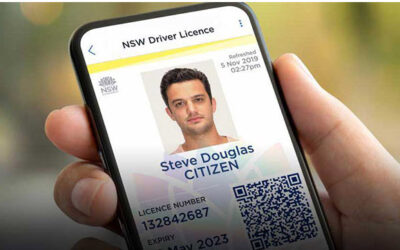If your only experience with pawnshops is watching Pawn Stars on television, you might not know much about them. But in the hundreds of years they’ve existed, pawnshops fulfill an important role in the economy one that requires reliable access to legitimate government-issued identification documents.
Where did pawn shops come from?
Pawnshops first came into being as long as 3,000 years ago in China, according to the National Pawnbrokers Association (NPA). Today, more than 30 million people use pawnshops.
More recently, the pawnshop’s traditional symbol was a sign with three golden balls. “The three-sphere symbol is attributed to the Medici family of Florence, Italy, owing to its symbolic meaning of Lombard,” a region in Italy, according to the Times of India. “The three golden spheres were originally the symbol which medieval Lombard merchants hung in front of their houses, and later became the arms of the Medici family. It has been conjectured that the golden spheres were originally three flat yellow effigies of gold coins, laid heraldically upon a a sable field, but that they were converted into spheres to better attract attention.”
But what is a pawnshop? “Pawnshops allow people to ‘pawn’ an item of value to a pawnbroker who in turn gives them money for the item,” Vista Pawn, a Boise-based pawnshop in business for more than 20 years, explains on its website. “If the person who pawned the item returns to retrieve the item, they pay the money back plus a small fee at a later date and receive their item back.”
If the person doesn’t return or can’t pay back the money, the pawnbroker then owns the item, and typically sells it.
The need for identification
You can see why pawnshops require reliable, government-issued identification. The ability to bring in a variety of valuables and get money for them is an invitation to thieves. That protects the pawnbroker, too, who might otherwise be accused of being a fence and in league with the thieves.
“Independent pawnbrokers comply with local, state, and federal regulations and laws, and in most jurisdictions, provide local law enforcement with data on all transactions on a daily basis,” notes the NPA.
Consequently, pawnshops these days are required to take government-issued identification, such as a driver’s license, from anyone bringing in items to pawn. Some jurisdictions are even stricter. “Pawnbrokers must first secure adequate identification from the customer before purchasing an article of personal property, receiving a pledge of personal property from, or exchanging personal property,” notes the city of Philadelphia. “At the time of the transaction, the pawnbroker must take a digital photograph of the customer, obtain a clear imprint of the customer’s left thumbprint and have the customer present photo-identification issued by a state or federal government.”
In fact, depending on the state, if an item is proven to be stolen, the pawnbroker is not only required to return it to the original owner, but could be fined. “Always ask questions of customers to determine if items they want to pawn are stolen,” writes BizFluent, a company that provides information to entrepreneurs. “When in doubt, check with local police before purchasing an item. Arkansas law requires pawn shops to return stolen items to their rightful owners, and imposes fines for failure to return stolen property.”
Storing the identification information
Having taken the government-issued identification, though, pawnshops also need to store this information in a retrievable fashion. For example, if a customer is accused of theft, it’s important for the pawnbroker to be able to retrieve that customer’s identification quickly and efficiently to respond to law enforcement.
Moreover, law enforcement might want to look back at all of that customer’s records, not just the most recent one, to see whether any other merchandise might have been stolen.
There’s other reasons pawnbrokers might want access to their customers’ information besides responding to law enforcement. They might want to remind the customer that a payment is due. Or, because many people who take merchandise to pawnshops buy merchandise from them, too, pawnshops might want to let customers know of an upcoming sale or something in particular that a customer likes to buy, such as estate jewelry.
In addition, for customers buying products, there may be age limits or other requirements for seeing government-issued identification, such as firearms.
While, historically, pawnbrokers may have used notebooks or other methods to record this information, obviously in this day and age the best way to store it is in a computer. The information is legible, retrievable, and, most important, searchable. Moreover, many governments require information from the pawnbroker to be sent using a computer.
The most reliable way to record the government-issued identification is for the software to store an actual image of it, which proves that the pawnbroker has seen it, as well as using optical character recognition to store the data on it, which makes the information easier to find.
“Taking the time to set up updated systems and technology for a pawnshop operation is not only necessary but will ensure your success,” notes the NPA. “Additional systems should be set up for every procedure that takes place in your store.”
The problem is, someone can be a great pawnbroker, and not be a computer expert. They might not even know how to run a computer or software, and they certainly don’t want to have to create a software system for their business from scratch.
Why the cloud is the answer
Consequently, a number of vendors have created software specifically for the pawnshop industry to help pawnbrokers run their businesses. Some of these products don’t even require that the pawnbroker run it on their own computer. Instead, they’re known as “software as a service,” or SaaS. The software runs on the SaaS vendor’s own computers, and the SaaS vendor is responsible for maintaining the computer hardware and software without the pawnbroker ever having to be involved. This is known as running in the “cloud.”
Running software in the cloud has a number of advantages besides not having to worry about maintaining computer hardware and software.
- The data is safely stored away someplace remote from the pawnshop itself and is regularly backed up. If something happens to the pawnshop, the data is still there so the pawnbroker can rebuild their business.
- If business is booming or the pawnbroker wants to open more pawnshops, the SaaS vendor just adds more computer hardware resources, such as storage, memory, or processing power, to the pawnshop’s account for as long as it’s needed. The pawnbroker doesn’t have to worry about buying new hardware or having extra hardware lying around unused should business decline.
- SaaS vendors know a lot about security, which is important when you’re talking about storing personally identifiable information (PII). They can protect that PII so the pawnbroker doesn’t have to worry about being hacked, and all the legal requirements around reporting and notification that involves.
Pawnbroking is a legitimate business that plays an important role in the economy. It’s important to use up-to-date computer technology to follow government identification requirements to ensure the business is successful.
Interested in learning how optical character recognition can help your business protect itself by using physical identification documents? For a free trial of our API or software, please email us at [email protected].




